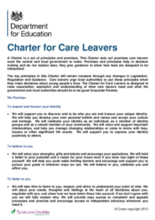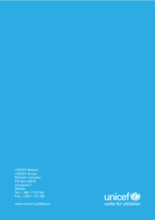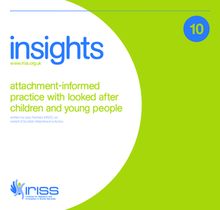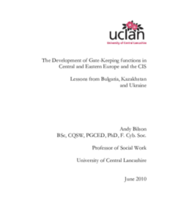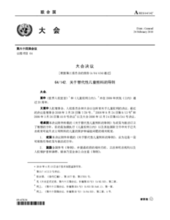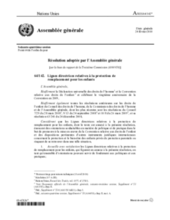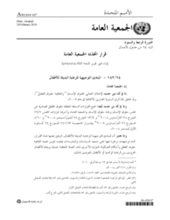Displaying 191 - 200 of 281
This study used the National Survey of Child and Adolescent Well-being (NSCAW, long term foster care general sample) data set to examine foster child and caregiver characteristics, and the caregiver–child relationship as a predictor of placement stability.
The National Family Preservation Network (NFPN) recently released its family assessment tool designed for use in Least Developed Countries (LDC). The tool aims to help a variety of workers serving families in least developed countries by providing methods and approaches to enhance family strengthening.
This Charter lists the promises that care leavers want the central and local governments to make. The Charter for Care Leavers is designed to raise expectations, aspirations and understanding of what care leavers need and what the government and local authorities should do to be good “Corporate Parents.”
This study commissioned by the Ministry of Gender, Children, and Community Development and financially and technically supported by UNICEF and the Better Care Network, describes the situation of children in institutional care in Malawi.
This document stresses the importance of healthy attachments for children, especially looked after children. It provides an overview of attachment theory, presents the policy context of looked after children in Scotland, outlines the evidence on effective interventions for children in care and their families, and highlights findings and practice implications.
This manual offers a training session targeted at policy makers, professionals and paraprofessionals who are already working on programs to support children without appropriate care, or who may begin work in this area. This workshop focuses on children in developing contexts, who require support within their families and those who need an alternative care placement.
This report looks at children who enter institutional care because of being without parental care, children with disabilities, child victims of abuse and children in conflict with the law. The aim is to identify key routes through the systems in order to understand the nature of the difficulties that lead children to be placed in institutions and thereby to be able to identify alternative strategies that will better support families and children.
The Guidelines for the Alternative Care of Children were endorsed by the United Nations General Assembly on 20th November 2009, in connection with the 20th anniversary of the UN Convention on the Rights of the Child.
Les lignes directrices pour la prise en charge alternative des enfants ont été endorsées par l'Assemblée Générale des Nations Unies, dans le sillage de la commémoration du 20e anniversaire de la Convention des Nations Unies relative aux droits de l’enfant.
The Guidelines for the Alternative Care of Children were endorsed by the United Nations General Assembly on 20th November 2009, in connection with the 20th anniversary of the UN Convention on the Rights of the Child. This momentous day marked a culmination of years of discussions and negotiations led by the Government of Brazil, in partnership with Group of Friends and civil society.

